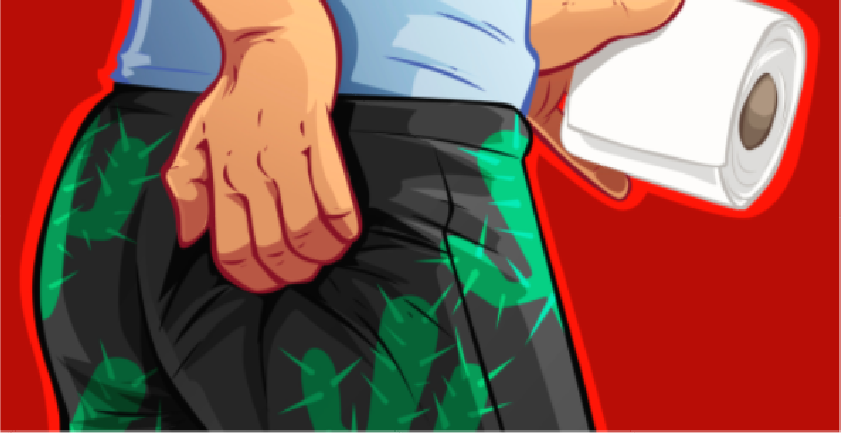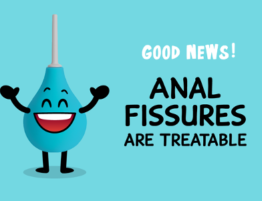
Anal Fissures which is not the topic for “Chai pe Characha” kind off nor it’s a topic for friends/family gathering because the people are ashamed of this problem to discuss with any.
As per the report, Anal fissures affect males and females equally; however, an anterior fissure is more likely to develop in women (25%) than in men (8%). Although anal fissures are the most common cause of rectal bleeding in infants, they are primarily seen in young adults. Eighty-seven percent of people with a chronic anal fissure are between the ages of 20 and 60 years. Anal fissures in children may indicate sexual abuse.
In India, there are More than 1 million cases of anal fissure per year.
In fact, this potentially painful, debilitating, anxiety-provoking condition is quite common. If a fissure doesn’t heal on its own, it can usually be treated and recurrences prevented with conservative measures.
So here I’m going to discuss everything about anal fissure
Let’s start with
What is Anal Fissure?
An anal fissure is a small tear in the thin, moist tissue (mucosa) that lines the anus. An anal fissure may occur when you pass hard or large stools during a bowel movement. Anal fissures typically cause pain and bleeding with bowel movements. You also may experience spasms in the ring of muscle at the end of your anus (anal sphincter).
The pain can be really bad and tends to be worse when you pass stools (faeces) and for an hour or so after passing stools. You may also get some bleeding when you pass stools – usually bright red, in the pan or on the toilet paper. Bleeding from the back passage should always be checked by a doctor.
Anal Fissure Causes:
Anal fissures are most commonly caused by damage to the lining of the anus or anal canal, the last part of the large intestine.
- Constipation
- Diarrhea
- Muscle Spasms
- Pregnancy and Childbirth
- STIs – Sexually Transmitted Infections
- Underlying condition
- Anal Sex
- Crohn’s disease or another inflammatory bowel disease
- Anal Cancer
- HIV
- Tuberculosis
- Syphilis
Anal Fissure Symptoms:
- Pain, sometimes severe, during bowel movements
- Pain after bowel movements that can last up to several hours
- Bright red blood on the stool or toilet paper after a bowel movement
- A visible crack in the skin around the anus
- A small lump or skin tag on the skin near the anal fissure
Anal Fissure Prevention:
- Eat more fibre to prevent from constipation because constipation leads to Anal fissure.
- Stay Hydrated
- Do exercise
- Don’t ignore your urge to go
- avoid foods that may not be well-digested, such as nuts and popcorn
- avoid straining and sitting on the toilet for a long time
Anal Fissure Treatment:
Anal fissure can cure by taking proper treatment and follow the instruction of the Specialist Doctor of Fissure.
And never hesitate to visit our hospital and there is no shame of such problem. We know how painfully it is and it should be cure as you have any signs or symptoms of Anal Fissure. Feel free to visit our hospital. We provide best Fissure Treatment in Ahmedabad.
Shah Piles Fistula hospital has treated more than 1.5 lac patients over the years suffering from a spectrum of diseases which include Piles (Masa\Babasir), Fissure (Wadhiya), Fistula (Bhagandar), Pilonidal sinus, Rectal polyp and all other problems related to the anal canal.
The vision of Shah Piles Fistula Hospital is to serve the people suffering from the most common health problems related to Anal Canal. The hospital has been brought to action to serve society.



